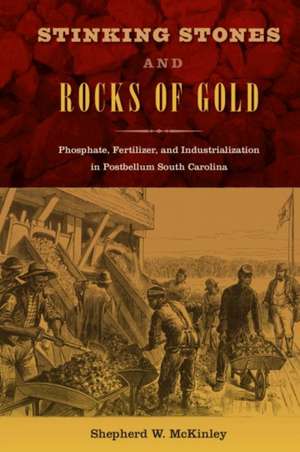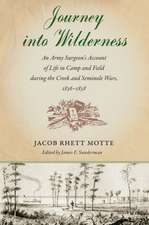Stinking Stones and Rocks of Gold
Autor Shepherd W McKinleyen Limba Engleză Paperback – 28 noi 2017
Fueling the rapid growth of lowcountry fertilizer companies, phosphate mining provided elite plantation owners a way to stem losses from emancipation. At the same time, mining created an autonomous alternative to sharecropping, enabling freed people to extract housing and labor concessions.
Stinking Stones and Rocks of Gold develops an overarching view of what can be considered one of many key factors in the birth of southern industry. This top-down, bottom-up history (business, labor, social, and economic) analyzes an alternative path for all peoples in the post-emancipation South.
Preț: 166.73 lei
Nou
Puncte Express: 250
Preț estimativ în valută:
31.93€ • 32.90$ • 26.79£
31.93€ • 32.90$ • 26.79£
Carte tipărită la comandă
Livrare economică 22 februarie-08 martie
Preluare comenzi: 021 569.72.76
Specificații
ISBN-13: 9780813064611
ISBN-10: 0813064619
Pagini: 246
Dimensiuni: 152 x 229 x 14 mm
Greutate: 0.37 kg
Editura: University Press of Florida
ISBN-10: 0813064619
Pagini: 246
Dimensiuni: 152 x 229 x 14 mm
Greutate: 0.37 kg
Editura: University Press of Florida
Descriere
In the first book ever written about the impact of phosphate mining on the South Carolina plantation economy, Shepherd McKinley explains how the convergence of the phosphate and fertilizer industries carried long-term impacts for America and the South. This top-down, bottom-up history analyses an alternative path for all peoples in the post-emancipation South.







